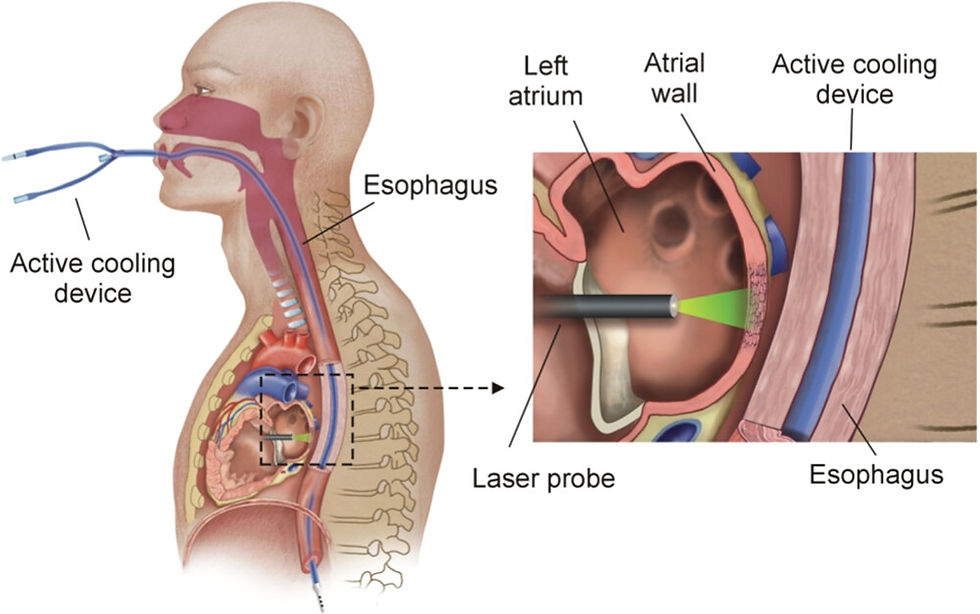
Publications

Quantification of thermal side effects during pulsed field ablation
Background and Aims Pulsed field ablation (PFA) has been described as non-thermal, but abundant data exist in oncology applications, and growing data are emerging in cardiology, highlighting that thermal effects are in fact present with PFA. Our objective was to develop a reliable model of the ...

Quantification of hemolysis rates from pulsed field ablation
Introduction
Pulsed electric fields induce hemolysis of red blood cells as a dose-dependent effect of the electric field. Voltage pulsations induce a transmembrane potential across the cell membrane and either open up or create pores in the red cells. In isotonic conditions, the pores allow ...

Mechanisms of Action Behind the Protective Effects of Proactive Esophageal Cooling During Radiofrequency Catheter Ablation in the Left Atrium
Proactive esophageal cooling for the purpose of reducing the likelihood of ablation-related esophageal injury resulting from radiofrequency (RF) cardiac ablation procedures is increasingly being used and has been Food and Drug Administration cleared as a protective strategy during left atrial RF ...

Proactive esophageal cooling during laser cardiac ablation: A computer modeling study
Background and Objectives
Laser ablation is increasingly used to treat atrial fibrillation (AF). However, atrioesophageal injury remains a potentially serious complication. While proactive esophageal cooling (PEC) reduces esophageal injury during radiofrequency ablation, the effects of PEC during...